
At the outset, let us be clear about certain terms and definitions about close-up and macro photography so that we are on the same wavelength. Note that though there are several ways to achieve higher magnification, I will be stressing more on close-up filters and macro lenses.
Close-up photography
This is a general term for ‘tight shots’. You take the shot by moving closer to the subject – using one of the several methods available – while taking in very little background. The idea is to get a large frame-filling image that can show more details than a ‘normal’ shot – one that includes the subject with a generous amount of background.
Close-up photography is limited to a maximum magnification ratio of 1: 10.
Close-up lenses, also known as close-up filters or dioptre lenses are supplementary lenses that attach to the front of the lens via the filter thread (consider them as a magnifying glass). This is the easiest and the cheapest solution for close-up photography. Generally, we attach close-up filters only to prime lenses and not to zoom lenses but with extra care, that too is possible.
Dioptre lenses are available in different strengths, ranging from +1 dioptre to +10.
Dioptre
+1
+2
+3
+4
Focal length
1 metre (approx. 40”)
1/2 metre (approx. 20”)
1/3 metre (approx. 13.12”)
1/4 metre (approx. 10”)
This story is from the {{IssueName}} edition of {{MagazineName}}.
Start your 7-day Magzter GOLD free trial to access thousands of curated premium stories, and 9,000+ magazines and newspapers.
Already a subscriber ? Sign In
This story is from the {{IssueName}} edition of {{MagazineName}}.
Start your 7-day Magzter GOLD free trial to access thousands of curated premium stories, and 9,000+ magazines and newspapers.
Already a subscriber? Sign In
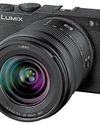
SELECTING THE RIGHT SYSTEM
Buying a new mirrorless camera can be a daunting decision. Not only are cameras very expensive, but also choosing a brand with an exclusive mount can mean locking yourself into a system.

Capturing Momenta Folding Boundaries
With the Pixel 9 Pro Fold, Google takes cues from its impressive line-up of Pixel smartphones and resolves some of the design oddities we’ve seen on foldable smartphones from more seasoned competitors in the category.
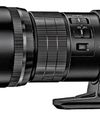
Super Sharp
Smart Photography reviewed the OM System OM 1 Mark II camera last month. If you haven’t read the review, please do so.
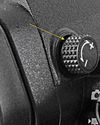
HIDDEN FEATURES OF YOUR CAMERA
Ashok Kandimalla has been in the photographic field for over three decades and has extensive experience in both film and digital photography.

Hahnemühle Hemp Paper at Olympics & Paralympics 2024
As the 2024 Paris Olympics and Paralympics embraced sustainability, Hahnemühle’s Digital FineArt Hemp paper played a central role as the exclusive medium for the official Premium Posters. This eco-friendly, plant-based paper aligned with the Games’ commitment to sustainability and delivered exceptional print quality. From limited-edition posters to the Artistic Posters Programme, Hahnemühle’s innovative use of hemp fibres showcased how high-value print products continue to thrive in a rapidly digitizing world.

The Lasting Power of Print: Preserving Memories Through Photobooks
I am a software engineer turned photographer, and my journey in photography has been a constant companion throughout my life.

The Wildlife of Eastern Mongolian Steppe
Mohit Ghatak is an engineer and a management postgraduate and works as a regional business leader in Singapore.

Abhishek Dey's Photo World
I identify myself more as a travel photographer than a purely landscape photographer.
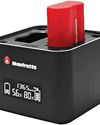
Manfrotto lithium ion batteries for cameras
Manfrotto has introduced its new MKII lithium-ion batteries, featuring a higher capacity of 2400mAh for Nikon, Sony, Canon, Fuji, and OM System cameras.
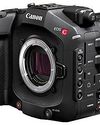
Canon to have EOS C80 with enhanced features
Canon announced the launch of its latest Cinema EOS camera, the EOS C80, just ahead of the International Broadcasting Convention (IBC) 2024.